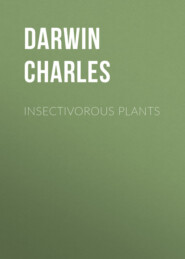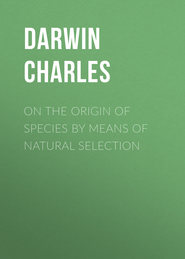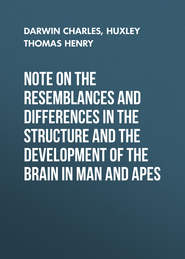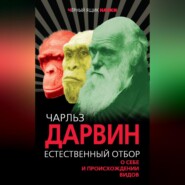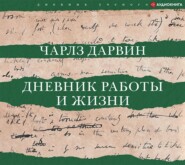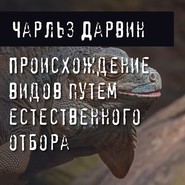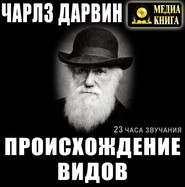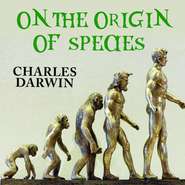По всем вопросам обращайтесь на: info@litportal.ru
(©) 2003-2024.
✖
The Expression of the Emotions in Man and Animals
Настройки чтения
Размер шрифта
Высота строк
Поля
[ Professor Owen expressly states (Proc. Zoolog. Soc. 1830, p. 28) that this is the case with respect to the Orang, and specifies all the more important muscles which are well known to serve with man for the expression of his feelings. See, also, a description of several of the facial muscles in the Chimpanzee, by Prof. Macalister, in 'Annals and Magazine of Natural History,' vol. vii. May, 1871, p. 342.]
14 (return (#linknoteref_14))
[ 'Anatomy of Expression,' pp. 121, 138.]
15 (return (#linknoteref_15))
[ 'De la Physionomie,' pp. 12, 73.]
16 (return (#linknoteref_15))
[ 'Mecanisme de la Physionomie Humaine,' 8vo edit. p. 31.]
17 (return (#linknoteref_17))
[ 'Elements of Physiology,' English translation, vol. ii. p. 934.]
18 (return (#linknoteref_18))
[ 'Anatomy of Expression,' 3rd edit. p. 198.]
19 (return (#linknoteref_19))
[ See remarks to this effect in Lessing's 'Lacooon,' translated by W. Ross, 1836, p. 19.]
20 (return (#linknoteref_20))
[ Mr. Partridge in Todd's 'Cyclopaedia of Anatomy and Physiology,' vol. ii. p. 227.]
21 (return (#linknoteref_20))
[ 'La Physionomie,' par G. Lavater, tom. iv. 1820, p. 274. On the number of the facial muscles, see vol. iv. pp. 209-211.]
22 (return (#linknoteref_20))
[ 'Mimik und Physiognomik,' 1867, s. 91.]
101 (return (#linknoteref_101))
[ Mr. Herbert Spencer ('Essays,' Second Series, 1863, p. 138) has drawn a clear distinction between emotions and sensations, the latter being "generated in our corporeal framework." He classes as Feelings both emotions and-sensations.]
102 (return (#linknoteref_102))
[ Muller, 'Elements of Physiology,' Eng. translat. vol. ii. p. 939. See also Mr. H. Spencer's interesting speculations on the same subject, and on the genesis of nerves, in his 'Principles of Biology,' vol. ii. p. 346; and in his 'Principles of Psychology,' 2nd edit. pp. 511-557.]
103 (return (#linknoteref_103))
[ A remark to much the same effect was made long ago by Hippocrates and by the illustrious Harvey; for both assert that a young animal forgets in the course of a few days the art of sucking, and cannot without some difficulty again acquire it. I give these assertions on the authority of Dr. Darwin, 'Zoonomia,' 1794, vol. i. p. 140.]
104 (return (#linknoteref_103))
[ See for my authorities, and for various analogous facts, 'The Variation of Animals and Plants under Domestication,' 1868, vol. ii. p. 304.]
105 (return (#linknoteref_105))
[ 'The Senses and the Intellect,' 2nd edit. 1864, p. 332. Prof. Huxley remarks ('Elementary Lessons in Physiology,' 5th edit. 1872, p. 306), "It may be laid down as a rule, that, if any two mental states be called up together, or in succession, with due frequency and vividness, the subsequent production of the one of them will suffice to call up the other, and that whether we desire it or not."]
106 (return (#linknoteref_106))
[ Gratiolet ('De la Physionomie,' p. 324), in his discussion on this subject, gives many analogous instances. See p. 42, on the opening and shutting of the eyes. Engel is quoted (p. 323) on the changed paces of a man, as his thoughts change.]
107 (return (#linknoteref_107))
[ 'Mecanisme de la Physionomie Humaine,' 1862, p. 17.]
108 (return (#linknoteref_108))
[ 'The Variation of Animals and Plants under Domestication,' vol. ii. p. 6. The inheritance of habitual gestures is so important for us, that I gladly avail myself of Mr. F. Galton's permission to give in his own words the following remarkable case: – "The following account of a habit occurring in individuals of three consecutive generations {footnote continues:} is of peculiar interest, because it occurs only during sound sleep, and therefore cannot be due to imitation, but must be altogether natural. The particulars are perfectly trustworthy, for I have enquired fully into them, and speak from abundant and independent evidence. A gentleman of considerable position was found by his wife to have the curious trick, when he lay fast asleep on his back in bed, of raising his right arm slowly in front of his face, up to his forehead, and then dropping it with a jerk, so that the wrist fell heavily on the bridge of his nose. The trick did not occur every night, but occasionally, and was independent of any ascertained cause. Sometimes it was repeated incessantly for an hour or more. The gentleman's nose was prominent, and its bridge often became sore from the blows which it received. At one time an awkward sore was produced, that was long in healing, on account of the recurrence, night after night, of the blows which first caused it. His wife had to remove the button from the wrist of his night-gown as it made severe scratches, and some means were attempted of tying his arm.
"Many years after his death, his son married a lady who had never heard of the family incident. She, however, observed precisely the same peculiarity in her husband; but his nose, from not being particularly prominent, has never as yet suffered from the blows. The trick does not occur when he is half-asleep, as, for example, when dozing in his arm-chair, but the moment he is fast asleep it is apt to begin. It is, as with his father, intermittent; sometimes ceasing for many nights, and sometimes almost incessant during a part of every night. It is performed, as it was by his father, with his right hand.
"One of his children, a girl, has inherited the same trick. She performs it, likewise, with the right hand, but in a slightly modified form; for, after raising the arm, she does not allow the wrist to drop upon the bridge of the nose, but the palm of the half-closed hand falls over and down the nose, striking it rather rapidly. It is also very intermittent with this child, not occurring for periods of some months, but sometimes occurring almost incessantly."]
109 (return (#linknoteref_109))
[ Prof. Huxley remarks ('Elementary Physiology,' 5th edit. p. 305) that reflex actions proper to the spinal cord are NATURAL; but, by the help of the brain, that is through habit, an infinity of ARTIFICIAL reflex actions may be acquired. Virchow admits ('Sammlung wissenschaft. Vortrage,' &c., "Ueber das Ruckeninark," 1871, ss. 24, 31) that some reflex actions can hardly be distinguished from instincts; and, of the latter, it may be added, some cannot be distinguished from inherited habits.]
110 (return (#linknoteref_110))
[ Dr. Maudsley, 'Body and Mind,' 1870, p. 8.]
111 (return (#linknoteref_111))
[ See the very interesting discussion on the whole subject by Claude Bernard, 'Tissus Vivants,' 1866, p. 353-356.]
112 (return (#linknoteref_112))
[ 'Chapters on Mental Physiology,' 1858, p. 85.]
113 (return (#linknoteref_113))
[ Muller remarks ('Elements of Physiology,' Eng. tr. vol. ii. p. 1311) on starting being always accompanied by the closure of the eyelids.]
114 (return (#linknoteref_114))
[ Dr. Maudsley remarks ('Body and Mind,' p. 10) that "reflex movements which commonly effect a useful end may, under the changed circumstances of disease, do great mischief, becoming even the occasion of violent suffering and of a most painful death."]
115 (return (#linknoteref_115))
14 (return (#linknoteref_14))
[ 'Anatomy of Expression,' pp. 121, 138.]
15 (return (#linknoteref_15))
[ 'De la Physionomie,' pp. 12, 73.]
16 (return (#linknoteref_15))
[ 'Mecanisme de la Physionomie Humaine,' 8vo edit. p. 31.]
17 (return (#linknoteref_17))
[ 'Elements of Physiology,' English translation, vol. ii. p. 934.]
18 (return (#linknoteref_18))
[ 'Anatomy of Expression,' 3rd edit. p. 198.]
19 (return (#linknoteref_19))
[ See remarks to this effect in Lessing's 'Lacooon,' translated by W. Ross, 1836, p. 19.]
20 (return (#linknoteref_20))
[ Mr. Partridge in Todd's 'Cyclopaedia of Anatomy and Physiology,' vol. ii. p. 227.]
21 (return (#linknoteref_20))
[ 'La Physionomie,' par G. Lavater, tom. iv. 1820, p. 274. On the number of the facial muscles, see vol. iv. pp. 209-211.]
22 (return (#linknoteref_20))
[ 'Mimik und Physiognomik,' 1867, s. 91.]
101 (return (#linknoteref_101))
[ Mr. Herbert Spencer ('Essays,' Second Series, 1863, p. 138) has drawn a clear distinction between emotions and sensations, the latter being "generated in our corporeal framework." He classes as Feelings both emotions and-sensations.]
102 (return (#linknoteref_102))
[ Muller, 'Elements of Physiology,' Eng. translat. vol. ii. p. 939. See also Mr. H. Spencer's interesting speculations on the same subject, and on the genesis of nerves, in his 'Principles of Biology,' vol. ii. p. 346; and in his 'Principles of Psychology,' 2nd edit. pp. 511-557.]
103 (return (#linknoteref_103))
[ A remark to much the same effect was made long ago by Hippocrates and by the illustrious Harvey; for both assert that a young animal forgets in the course of a few days the art of sucking, and cannot without some difficulty again acquire it. I give these assertions on the authority of Dr. Darwin, 'Zoonomia,' 1794, vol. i. p. 140.]
104 (return (#linknoteref_103))
[ See for my authorities, and for various analogous facts, 'The Variation of Animals and Plants under Domestication,' 1868, vol. ii. p. 304.]
105 (return (#linknoteref_105))
[ 'The Senses and the Intellect,' 2nd edit. 1864, p. 332. Prof. Huxley remarks ('Elementary Lessons in Physiology,' 5th edit. 1872, p. 306), "It may be laid down as a rule, that, if any two mental states be called up together, or in succession, with due frequency and vividness, the subsequent production of the one of them will suffice to call up the other, and that whether we desire it or not."]
106 (return (#linknoteref_106))
[ Gratiolet ('De la Physionomie,' p. 324), in his discussion on this subject, gives many analogous instances. See p. 42, on the opening and shutting of the eyes. Engel is quoted (p. 323) on the changed paces of a man, as his thoughts change.]
107 (return (#linknoteref_107))
[ 'Mecanisme de la Physionomie Humaine,' 1862, p. 17.]
108 (return (#linknoteref_108))
[ 'The Variation of Animals and Plants under Domestication,' vol. ii. p. 6. The inheritance of habitual gestures is so important for us, that I gladly avail myself of Mr. F. Galton's permission to give in his own words the following remarkable case: – "The following account of a habit occurring in individuals of three consecutive generations {footnote continues:} is of peculiar interest, because it occurs only during sound sleep, and therefore cannot be due to imitation, but must be altogether natural. The particulars are perfectly trustworthy, for I have enquired fully into them, and speak from abundant and independent evidence. A gentleman of considerable position was found by his wife to have the curious trick, when he lay fast asleep on his back in bed, of raising his right arm slowly in front of his face, up to his forehead, and then dropping it with a jerk, so that the wrist fell heavily on the bridge of his nose. The trick did not occur every night, but occasionally, and was independent of any ascertained cause. Sometimes it was repeated incessantly for an hour or more. The gentleman's nose was prominent, and its bridge often became sore from the blows which it received. At one time an awkward sore was produced, that was long in healing, on account of the recurrence, night after night, of the blows which first caused it. His wife had to remove the button from the wrist of his night-gown as it made severe scratches, and some means were attempted of tying his arm.
"Many years after his death, his son married a lady who had never heard of the family incident. She, however, observed precisely the same peculiarity in her husband; but his nose, from not being particularly prominent, has never as yet suffered from the blows. The trick does not occur when he is half-asleep, as, for example, when dozing in his arm-chair, but the moment he is fast asleep it is apt to begin. It is, as with his father, intermittent; sometimes ceasing for many nights, and sometimes almost incessant during a part of every night. It is performed, as it was by his father, with his right hand.
"One of his children, a girl, has inherited the same trick. She performs it, likewise, with the right hand, but in a slightly modified form; for, after raising the arm, she does not allow the wrist to drop upon the bridge of the nose, but the palm of the half-closed hand falls over and down the nose, striking it rather rapidly. It is also very intermittent with this child, not occurring for periods of some months, but sometimes occurring almost incessantly."]
109 (return (#linknoteref_109))
[ Prof. Huxley remarks ('Elementary Physiology,' 5th edit. p. 305) that reflex actions proper to the spinal cord are NATURAL; but, by the help of the brain, that is through habit, an infinity of ARTIFICIAL reflex actions may be acquired. Virchow admits ('Sammlung wissenschaft. Vortrage,' &c., "Ueber das Ruckeninark," 1871, ss. 24, 31) that some reflex actions can hardly be distinguished from instincts; and, of the latter, it may be added, some cannot be distinguished from inherited habits.]
110 (return (#linknoteref_110))
[ Dr. Maudsley, 'Body and Mind,' 1870, p. 8.]
111 (return (#linknoteref_111))
[ See the very interesting discussion on the whole subject by Claude Bernard, 'Tissus Vivants,' 1866, p. 353-356.]
112 (return (#linknoteref_112))
[ 'Chapters on Mental Physiology,' 1858, p. 85.]
113 (return (#linknoteref_113))
[ Muller remarks ('Elements of Physiology,' Eng. tr. vol. ii. p. 1311) on starting being always accompanied by the closure of the eyelids.]
114 (return (#linknoteref_114))
[ Dr. Maudsley remarks ('Body and Mind,' p. 10) that "reflex movements which commonly effect a useful end may, under the changed circumstances of disease, do great mischief, becoming even the occasion of violent suffering and of a most painful death."]
115 (return (#linknoteref_115))







